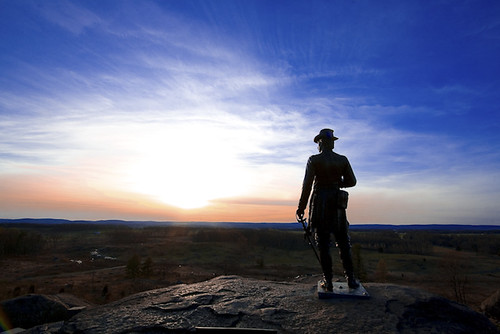Texas
for example, in its February 2, 1861, "Declaration of the Causes which
Impel the State of Texas to Secede from the Federal Union," would, in
typical loud and proud fashion, (as only a Texan like little Ricky Perry can)
declare how:
"In all the non-slave-holding States, in violation of that good faith and comity which should exist between entirely distinct nations, the people have formed themselves into a great sectional party, now strong enough in numbers to control the affairs of each of those States, based upon an unnatural feeling of hostility to these Southern States and their beneficent and patriarchal system of African slavery, proclaiming the debasing doctrine of equality of all men, irrespective of race or color-- a doctrine at war with nature, in opposition to the experience of mankind, and in violation of the plainest revelations of Divine Law. They demand the abolition of negro slavery throughout the confederacy, the recognition of political equality between the white and negro races, and avow their determination to press on their crusade against us, so long as a negro slave remains in these States."
Like
that? The real and contemporaneous words from those who started the whole thing
and their assertion was that enslaving another human being was an intrinsic
good, and that masters were somehow "beneficent" – nay, even
"patriarchal." Our Texas friends went further to chastise the very
notion of a "doctrine of equality of all men, irrespective of race or color—a
doctrine at war with nature, in opposition to the experience of mankind."
They even went so far as to up the ante, declaring how the very idea was
"in violation of the plainest revelations of Divine Law."
In
any event…bully for them for speaking their clear, unequivocal (albeit racist)
mind – in their own words!
It's
a darn shame their supporters (those same supporters who continuously tell us how much
they worship Declarations of Independence) don't share that same courage and
instead, are compelled to fashion elaborate and fanciful excuses…
Here's
a copy of Drew Gilpin Faust’s lecture: Telling War Stories: Reflections of a Civil War Historian
Here's
a link to the Texas "Declaration of the Causes which Impel the State of Texas
to Secede from the Federal Union:" Declaration of Causes of Seceding States
BTW
and if interested, I did something along the lines of slavery and "the
plainest revelations of Divine Law" awhile back:
The Bible and Slavery






.jpg)

































